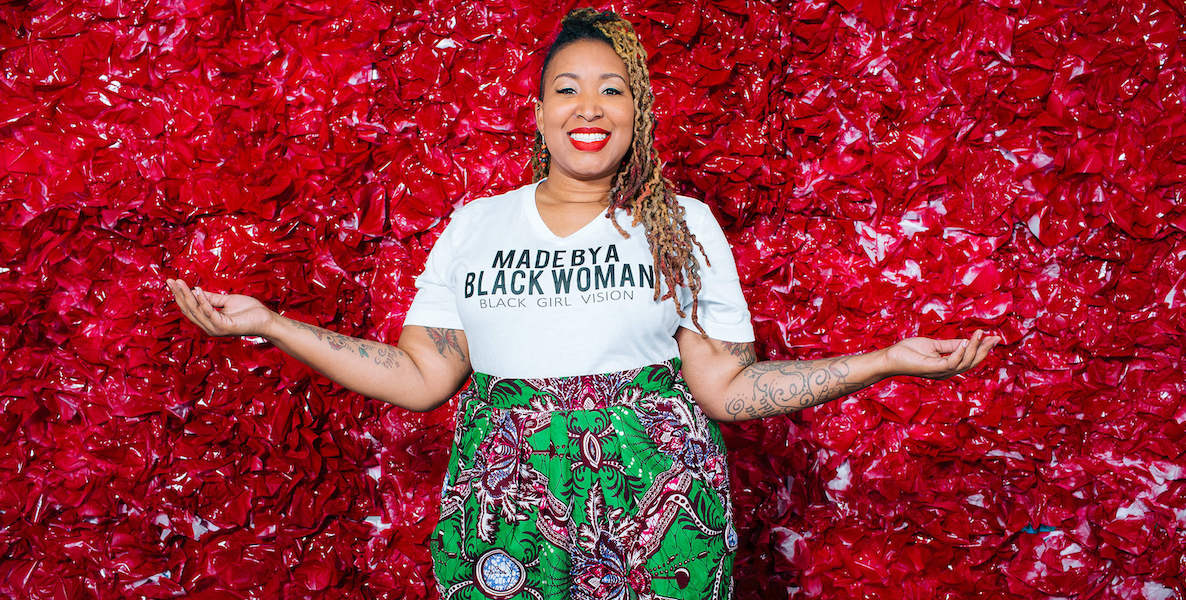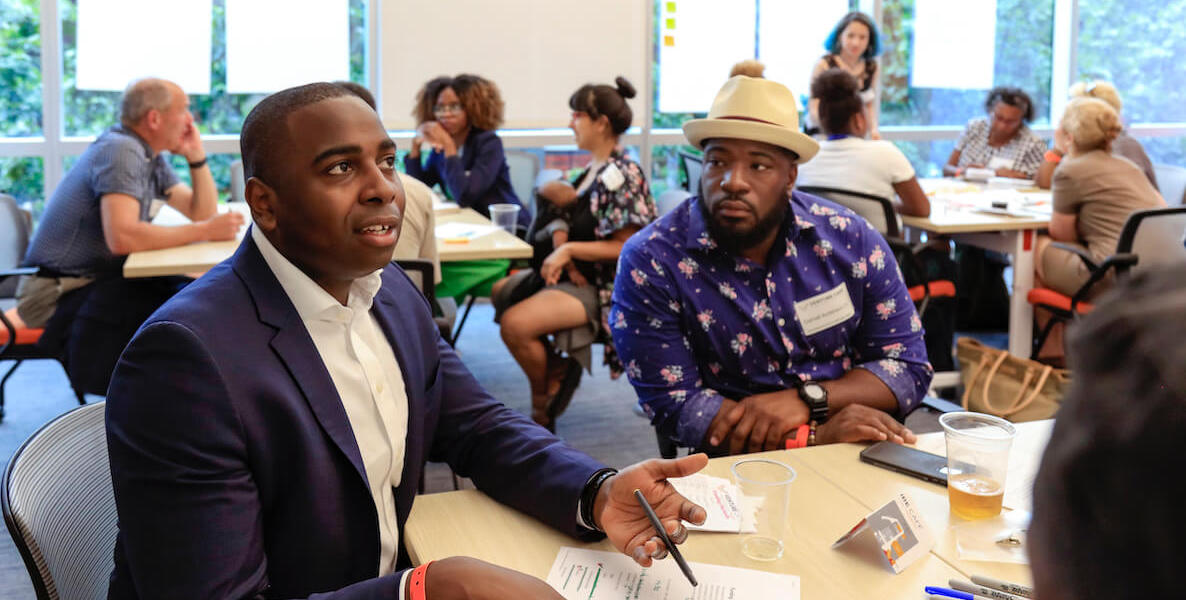to this story in CitizenCastListen
“If you needed to raise money for any particular cause within the black community, there was a moment when black and brown people would come together and support each other through small funds, in order to create a bigger pot to help a person succeed—whether it was to pay rent or afford to send a child to school,” explains Tiara Durham, a Philly-based business consultant.
Rent parties presented opportunities to support each other financially as well as socially, to come together in community and to escape the pervasive oppression of the day. “It was the effort of the village coming together, and it’s deeply rooted in African-American tradition,” says Durham, a lifelong entrepreneur who joined Black Girl Ventures’ Philly launch team in the spirit of mentoring other founders.
Today, that tradition is being revived and modernized as the centerpiece of Black Girl Ventures, a D.C.-based nonprofit that’s kicking off the launch of its new Philly chapter on Thursday at 6pm at Venture Cafe at University City Science Center.
At a time when women in general and black women, in particular, receive disproportionately less funding—one report found that black women received only .0006% of VC startup funding between 2009 and 2017—Durham explains that the spirit of Black Girl Ventures upholds the ethos of rent parties in its village-minded ethos. “We’re saying hey, we support you, we’re behind you, and if no one else is going to fund you, we will,” she says.
The way it works is straightforward. Black and brown founders who identify as women and are looking for funding reach out to Black Girl Ventures online. Black Girl Ventures provides them with networking, educational and coaching opportunities, through formal programming and individual mentoring.
Attend Black Girl Ventures' launch partyDo Something
Funding from one pitch session to another, then, varies, and is limited only by how many attendees show up, and how much they’re willing to invest. (Youth under 18 are welcome to pitch as part of a “youth spotlight”—they’ll receive feedback, but no funding.) Philly’s first pitch session since launching will be held in October.
Black Girl Ventures joins a few local investing opportunities for traditionally underfunded businesses, including Judy Wicks’ Circle of Aunts and Uncles, and Honeycomb Credit, a Pittsburgh-based organization that helps small businesses crowdfund for growth.
The organization was founded in 2016 by Shelly Bell, a computer scientist and teacher whose successful graphic design and web development businesses, which she launched with a tax return plus $5,000 from her mother, have made her an outspoken advocate for minority business leaders.
“We’re saying hey, we support you, we’re behind you, and if no one else is going to fund you, we will,” says Durham.
“The top three challenges of underrepresented founders are lack of access to capital, lack of access to influential networks and lack of the ability to get hired,” Bell says. The social capital piece, she says, is really the kicker. “Even if you get an influx of capital, do you have what I call the ABCs of business—an attorney, a banker and a CPA—to give you the information you need?”
A mother of three, Bell has also infused the initiative with an attention to the unique demands women juggle, which often penalize them professionally. It’s not uncommon for women to bring their kids to Black Girl Ventures’ events, and the organization is mindful of scheduling events on Saturday mornings, when childcare is commonly more available and women don’t have to take off from their day job.
“This is another infrastructure piece when we think about some of the things that could be leaving people out, and it just doesn’t make sense anymore given today’s social demands, cost of living and inflation,” she says.
Bell proudly shares an anecdote about a recent pitch session where a woman finished her presentation, then exited the stage to breastfeed her baby.
The organization’s goal, within the next decade, is to accelerate 10,000 black and brown women founders in each of the five cities—Birmingham, Durham, Houston, Miami, Philadelphia—where Black Girl Ventures has a chapter, whether through funding, coaching or other meaningful points of contact.
About applying to pitchLearn More
Before launch, she met with Ben Franklin Technology Partners, The Enterprise Center, and others embedded in the Philly startup scene to say Here’s what we do; would this be helpful for your ecosystem?
The resounding answer, in a city that’s more than 40 percent black but where only 2.5 percent of business owners are black?
Yes.
And so here they are, with their gift for bringing dollars, drive and the veritable village together.
Want more? Check out these related articles:
- Honeycomb Credit helps small business owners in Philly get crowdsourced loans
- This West Philly jobs initiative is the model for inclusive growth cities need
- Boston’s free CultureHouse pop-ups may be on their way to Philly






